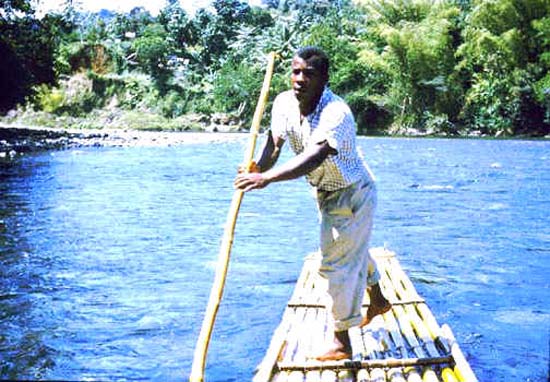
Graduate finds Peace Corps service in Jamaica rewarding
Graduate finds Peace Corps rewarding
by Joshua Sturgill
Kansas State Collegian
K-State graduate Rinav "Reno" Mehta said he finds his work as a "sanitation engineer" both challenging and rewarding.
Mehta, who graduated in May 1997 with a degree in civil engineering, said he has been able to utilize his degree while on assignment with the Peace Corps in Jamaica.
"I am literally a ÔSanitation Engineer,'" he said. "I work on water/waste treatment and hygiene education at the national level."
Of the 100 Corps volunteers in Jamaica, Mehta said most have rural assignments, but his job with the Jamaican government in Kingston is an exception.
"The government can't afford to hire engineers," he said. "So the work that the Peace Corps does is very important."
Mehta is seven months into his two-year assignment with the Corps and was on a brief leave to visit friends in Manhattan and his family in Overland Park. He said the short vacation has given him time to reflect on the unique services he is able to provide for the people of Jamaica.
"Right now, I'm building a sewage treatment plant for a hospital. They give me a monthly allowance for expenses and provide for my housing, but it comes out to about $11 a day," he said.
"I guess I'm used to it, though. I'm living like a poor college student."
He also is working with a health center, a high school and six primary schools on a second project north of Kingston.
"The Peace Corps promotes community work and being part of the community," he said. "I'm working to raise money for the health center and helping to paint it."
Mehta said the goal of his work is to find solutions local people can continue to maintain after he leaves.
"It's what they call Ôsustainability.' I help the locals to realize the problem, and then I work with them to make it their project. So at the health center, they weren't helping me finish my project, I was helping them. The goal is for the locals to continue after you're gone."
At the high school, Mehta said he works on a tree-planting program that uses recycled waste from a sewage treatment plant as fertilizer.
At one primary school, a rainwater collection tank is contaminated by crows on the roof of the building.
"My job is to find a way to scare them away without using any electricity," he said.
Mehta said these projects have given him a chance to gain experience and use his degree creatively.
"You're given bizarre situations, and you have to find a solution that is affordable, practical and will work," he said.
Reflecting back on the application process, Mehta said Jamaica was not necessarily his first choice.
"When people think of the Peace Corps, they think Africa," he said. "I think all I put on the application for a preference was Ôsomeplace warm' but not speaking another language limited my choices."
Mehta said that while he was working through the application process, setting up appointments, securing recommendations and waiting for replies, his friends were busy planning careers.
"My friends were all applying to grad schools and getting jobs, but I knew this was what I wanted to do," he said. "I had a lot of support from my friends. They knew I liked the Peace Corps."
Mehta said his parents were more concerned.
"My parents didn't like the idea, but they realized I was serious," he said. "Their goal for me was graduation. I graduated. They respected my decision, but I don't think they really understood at the time why I wanted to give up two years of my life."
Mehta said his years with the Peace Corps will not be wasted.
"Having hot water, sending kids to college -- what we take for granted, most of the world is struggling for. I feel that I've grown, and I'm glad I made the decision," he said. "No doubt I've had bad days, and sometimes it feels like an emotional roller coaster. This is a developing country, and there are people without safe water, without proper sanitation and children without schools."
This item was published on April 2, 1998
